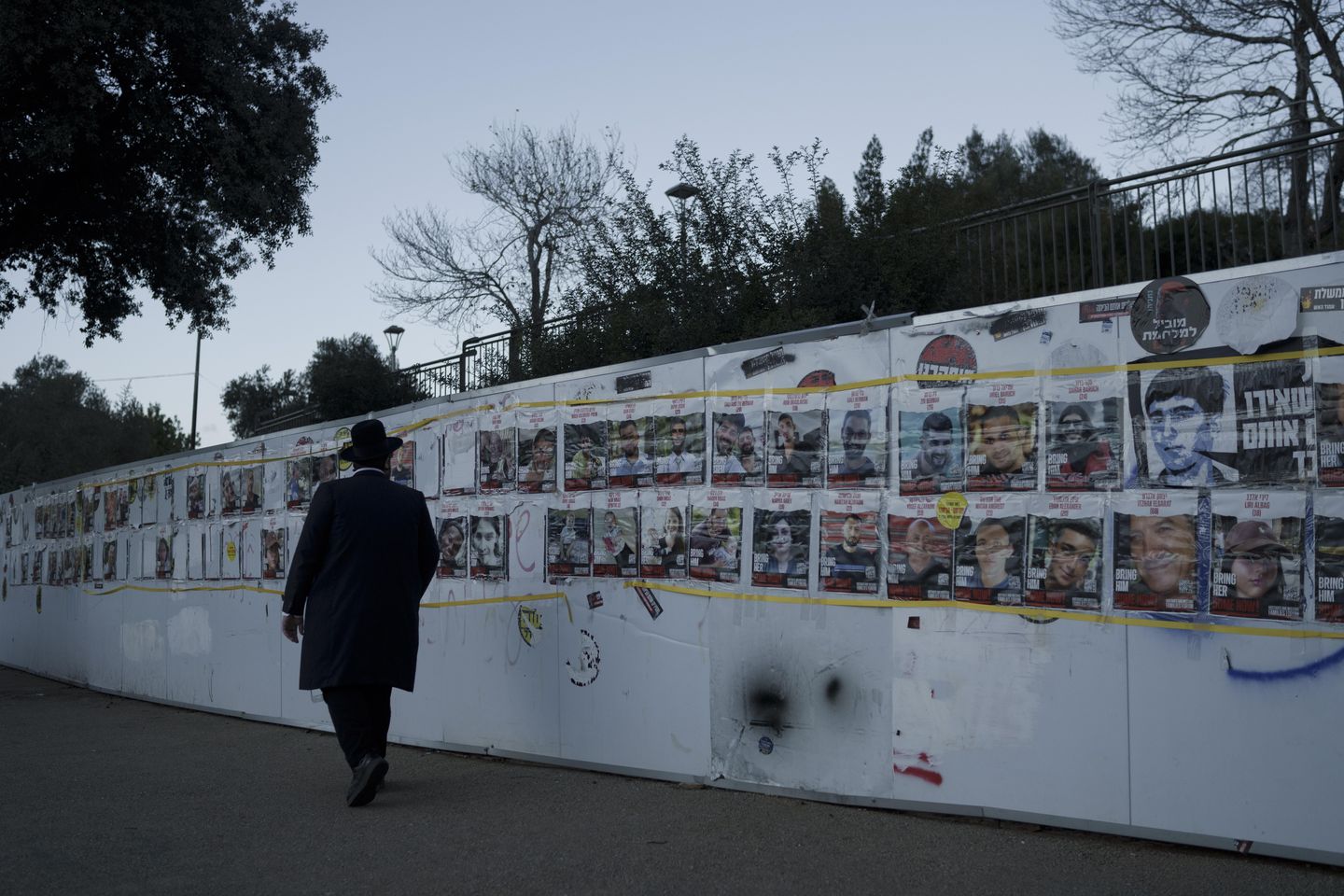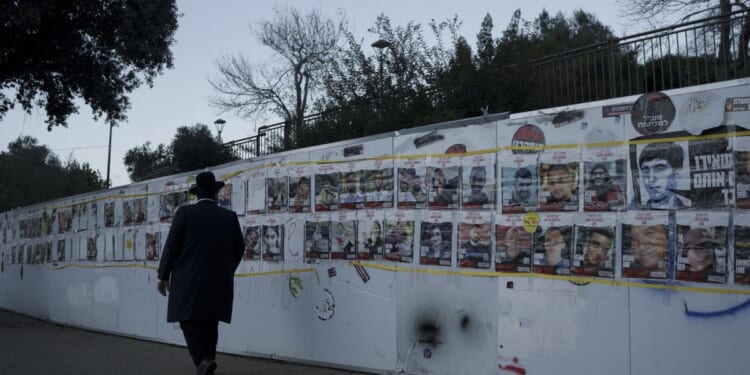
The Israel–Hamas war raced ahead on dual tracks Tuesday, with Israeli officials vowing to press forward with an offensive in the southern Gaza Strip near the Egyptian border even as both sides — and the Biden administration — tried to clinch a deal that would free all remaining hostages held by the Palestinian militants.
Hamas officials reportedly had delivered their response to a proposal for a sustained pause in fighting in Gaza in exchange for the release of all prisoners still in its custody. Israeli Prime Minister Benjamin Netanyahu, who has previously rejected cease-fire proposals warning they would only benefit Hamas, said that Mossad, Israel‘s intelligence service, is reviewing the Hamas response.
“Its details are being thoroughly evaluated by the officials involved in the negotiations,” Mr. Netanyahu‘s office said in a statement.
The fast-moving developments came as Secretary of State Antony Blinken continued his whirlwind tour across the Middle East, his fifth since the brutal Hamas attack on Oct. 7 that ignited the latest round of fighting. On Tuesday, he met with Egyptian President Abdel Fattah el-Sisi to discuss the talks with Hamas. Egypt has been a key mediator in talks with the Palestinian militant group, and Mr. Blinken’s visit to Egypt — along with a separate trip to Qatar on Tuesday — was viewed as a sign that a final deal might be close.
Mr. Blinken expressed cautious optimism during a press conference in Doha alongside Qatari Prime Minister Sheikh Mohammed bin Abdulrahman Al-Thani.
“There’s still a lot of work to be done, but we continue to believe that an agreement is possible, and indeed essential,” Mr. Blinken said. “The best path forward, the most effective path forward right now to get an extended period of calm and to work toward an end to the conflict, is through an agreement on the hostages.”
SEE ALSO: Most Israelis say safe return of hostages, rather than destroying Hamas, should be main goal: Poll
But there were also warning signs that the two parallel tracks — the hostage release talks and Israel‘s military operation in Gaza — could be on a collision course.
The tense relationship between Israel and Egypt came under fresh strain Tuesday. Egyptian officials warned Israel against its looming assault on the southern Gaza town of Rafah, on the Egyptian border, where more than half of the Palestinian enclave’s 2.3 million people have sought refuge. Egyptian officials even said that an Israeli deployment along the border could threaten the peace treaty the two countries signed over four decades ago. It also could imperil the delicate hostage release talks, especially if the Israeli military operations result in huge numbers of Palestinian refugees attempting to cross over the Gaza border into Egypt.
Against that backdrop, the State Department said that Mr. Blinken “discussed ongoing efforts to secure the release of all hostages held by Hamas” during his meetings with both Egyptian and Qatari officials. Hamas took more than 250 hostages during its Oct. 7 assault. About 100 were freed during a brief cease-fire last November. More than 130 remain in captivity. Some have died while in Hamas‘ custody.
The most recent cease-fire proposal would free all remaining hostages in exchange for a lengthy pause in the fighting and the release of an unknown number of Palestinians held in Israeli custody. Hamas officials said they delivered a formal response to the proposal Tuesday, though the details weren’t immediately clear.
In a statement, the group said it “dealt with the proposal in a positive spirit, ensuring a comprehensive and complete ceasefire, ending the aggression against our people, ensuring relief, shelter, and reconstruction, lifting the siege on the Gaza Strip, and achieving a prisoner swap,” according to Reuters. Hamas leaders say they are demanding “a comprehensive and complete” cease-fire, in addition to the freeing of large numbers of Palestinian prisoners, including high-profile militants, held by Israel.
In Israel, Mr. Netanyahu has repeatedly suggested that the military operation will ultimately continue, regardless of whatever deal is struck to free hostages.
SEE ALSO: U.S. not planning endless campaign in Iraq, Syria, Yemen
“We will kill the Hamas leadership, therefore, we must continue to act in all areas of the Gaza Strip. The war must not end before then,” he said Monday. “It will take time — months not years.”
Other top Israeli officials Tuesday promised to forge ahead with the offensive near Rafah, despite warnings from Egypt and from international officials who say the move could worsen an already dire humanitarian situation in Gaza.
For Mr. Netanyahu, new data made public Tuesday indicate that the Israeli public would rather see him prioritize the release of all hostages over the military campaign to crush Hamas.
A survey released Tuesday by the Israel Democracy Institute found that 51% of Israelis believe “bringing the hostages home” is the most important consideration, compared to 36% who said the top priority should be “toppling” Hamas, and about 13% said they “don’t know.”
The poll was conducted in late January and sampled 619 Jewish Israelis and 153 Arab Israelis.
It found key differences within the two groups. Forty-seven percent of Jewish Israelis sampled said that freeing the hostages should be the main goal, while 42% said it should be toppling Hamas. Among the Arab Israelis sampled, 69% said the main priority should be freeing the hostages, while just 8% said it should be toppling Hamas. About 23% said they don’t know.
• This article is based in part on wire service reports.












